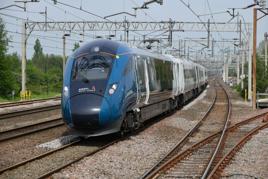Eventual rail nationalisation moved one step closer to reality as the Passenger Railway Services (Public Ownership) Bill cleared its first hurdle as MP’s voted 351 to 84 to give the bill a second reading yesterday.
The new government is moving quickly with the bill, and it will have a final reading in the Commons on 3 September.
As the bill was going through its second reading, the Transport Secretary, Louise Haigh promised to overhaul the complex fare system and drive innovations such as digital pay-as-you-go ticketing across the network.
Haigh also promised to put accessibility at the “core of its rail offer”.
Transport Secretary Louise Haigh also warned that said there was "nothing ideological about fixing what's broken" pledging to "rip up contracts early" if train operators do not meet their obligations to passengers.
Planned reforms to the railways were revealed in the King’s Speech at the state opening of Parliament on July 17, with two bills to be brought forward for legislation aimed at renationalising the railway and reconfiguring how it is governed.
Labour intends for public ownership to be the ‘default position’ by the end of its current term in office.
Currently four of the 14 franchises are run by the Department for Transport, with ScotRail and Caledonian Sleeper operated by the Scottish Government separately.
This is also the case for Transport for Wales, operated by the Welsh government since 2021.
The remaining franchises will come under government ownership once their respective contracts expire.
In the case of under-fire Avanti West Coast, this could be as soon as 2026, but this is not the case for some others, with CrossCountry’s contract expiring at its earliest in October 2027.
Ahead of the bill’s second reading, Rail Partners CEO Andy Bagnall commented: ‘Train companies agree that change is needed but it is disappointing to see government legislating to ban the use of contracted train companies, without first setting out the detail of how its wider rail reform bill will deliver improvements for passengers and freight customers.”
The Railways bill will include legislation ensuring track and train is brought back together, operating on a ‘whole system basis’ and within one single public body.
Labour has acknowledged that this will take time to implement after any legislation is passed.
To offset this, it will be setting up a ‘shadow GBR’ over the coming months, which it hopes will bring together key industry bodies.
However, it is unclear at this point where the division of powers will sit, and what the futures will be for the Rail Safety and Standards Board and the Office of Rail and Road.
Under the bill, a new passenger watchdog will also be established. RAIL understands that the Passenger Standards Authority will be independent from GBR, and will also establish GBR’s role in ticketing reform.
The government also clarified its position on HS2, with no plans currently to revive Phase 2. Instead, it will continue to repurpose the Phase 2b bill for “connecting regional centres in the North”.
This is likely to include the proposed new Liverpool-Manchester line, which is being planned by the devolved authorities of both cities.
Away from the two rail bills, the English Devolution Bill could result in further powers over local transport networks being handed to local authorities, while the Planning and Infrastructure Bill will lead to substantial changes to planning laws for major infrastructure projects.
















Login to comment
Comments
No comments have been made yet.